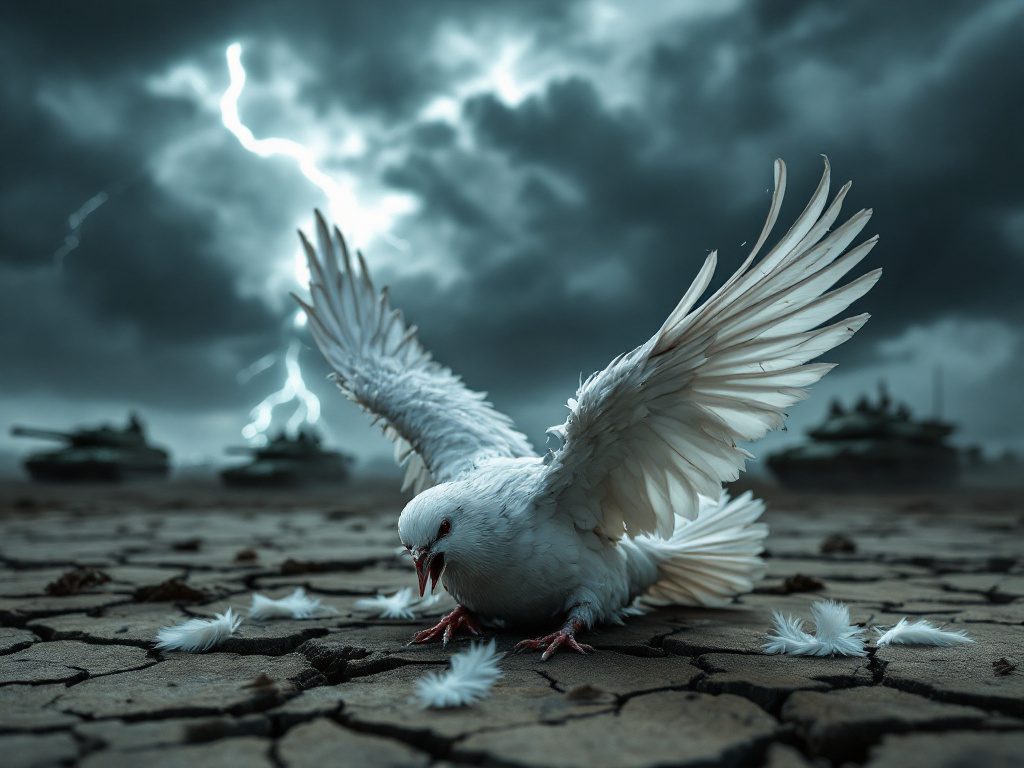Symbolic Gestures Versus Sustained Peace
Near the end of a bitter, protracted winter in Ukraine, a familiar political drama played out on the world stage. President Vladimir Putin’s declaration of a fleeting, 30-hour Easter ceasefire was met not with relief, but with sharp skepticism from Western capitals. Britain, along with Italy and other key European allies, called out the move for what it plainly is: a symbolic gesture insufficient for ending suffering and enabling genuine peace talks.
What does it mean, then, when a major power proposes a one-day truce amid grinding violence and displacement? For Ukrainian families hiding in basements, for front-line soldiers exhausted by daily bombardment, and for the humanitarian workers waiting in limbo, the distinction between optics and actual peace could not be starker. The UK’s Foreign, Commonwealth & Development Office bluntly dismissed Moscow’s proposal, describing the offer as little more than a public relations ploy, rather than an earnest step towards de-escalation.
Italian Foreign Minister Antonio Tajani echoed these sentiments, issuing a pointed call for Putin to show readiness for a full-scale, unconditional cessation of hostilities. As Tajani remarked, peace cannot flourish with the guns silent for one holiday, only to roar anew with the coming dawn. These demands line up with Ukraine’s own willingness to accept a U.S.-brokered, month-long ceasefire—a proposal that was swiftly rebuffed by Russia unless Kyiv meets sweeping conditions, including the cessation of foreign military aid.
Western Patience Wears Thin: Global Stakes in the Balance
A closer look reveals intensifying diplomatic pressure from the West—not just toward Moscow, but also toward Kyiv. U.S. President Donald Trump, whose administration has invested both resources and political capital in wavering mediation efforts, warned pointedly that Washington would “take a pass” on further negotiations if either side sabotaged prospects for true progress. This technique is not without precedent. During the Balkan Wars of the 1990s, Western intermediaries similarly conditioned their involvement on demonstrable steps toward de-escalation, not half-hearted or symbolic ceasefires.
Critics of these Western positions might contend that such ultimatums risk abandoning diplomacy altogether, but the consequences of inaction—or granting legitimacy to hollow gestures—are often more dire. As Harvard historian Serhii Plokhy notes, “Short-term truces can deepen cynicism, erode trust, and ultimately prolong conflicts by allowing one party to regroup without making meaningful concessions.”
This is not just about Ukraine. The current standoff is a litmus test for international norms, and how steadfastly the global community will defend the principle that might cannot make right. To allow piecemeal or insincere truces would be to carve another dangerous loophole for aggressors of the future.
“There can be no genuine peace or stable negotiations so long as ceasefires are treated as fig leaves for ongoing aggression.”
Britain and Italy’s adamant stance reveals a deeper anxiety: tolerance for incremental, performative peacemaking only emboldens authoritarian regimes to keep trying their luck at the expense of those caught in the crossfire.
What Does a Just and Lasting Peace Require?
The search for a lasting ceasefire is far more than just an exercise in diplomacy. It is, at its core, a moral imperative. The world remembers too well the lessons of failed truces in Syria and elsewhere, with civilians too often left as collateral damage between warring factions content with temporary pauses to regroup and re-arm. As London presses for a permanent end to the invasion, it’s worth reflecting: Can peace-building ever succeed if predicated on piecemeal, transactional offers?
Recent polling by the Pew Research Center shows overwhelming skepticism among Europeans toward partial or limited ceasefires, with over 60% of respondents doubting their effectiveness or sincerity. Grassroots advocates—many with direct ties to Ukrainian communities—have taken up the refrain that “a real ceasefire means real safety for families and children.” That sentiment resonates not only with diplomatic elites but also with everyday citizens fatigued by endless headlines and tallying casualties from afar.
If global powers genuinely want “a just and lasting peace,” slogans must give way to substance. The UK and Italy are right to demand more than a holiday armistice. To move forward, peace efforts must confront the fundamental issues underlying the war: territorial sovereignty, international law, and the protection of civilians. Anything less risks leaving not just Ukraine, but the broader framework of European security, at the mercy of political theater and military might.
So when Western leaders insist that “negotiations require real readiness to end hostilities,” they are, in essence, championing a principle that goes far beyond the geopolitics of one moment. They are advocating for a model of conflict resolution that honors democratic values, prioritizes human life, and closes the door to future wars of choice. The world should settle for nothing less.

